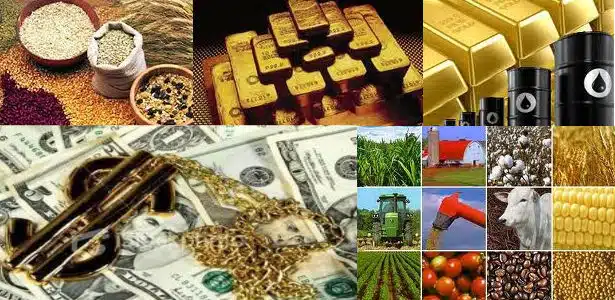With current emotions in many countries around the world apparently running strongly on nationalistic, parochial, even isolationist lines these days, is trade really so important? Trade, in its simplest form, is the exchange of one skill or commodity for another, or several others, and originated at the individual human level; that is even more evident today. It expanded to eventually encompass whole countries for roughly the same reason, is basically exchanging ‘commodities’ – resources, agricultural products – for manufactured items and sets of skills, and these days even exchanging the latter as items manufactured and skill sets have widened considerably. As the table below shows, nothing has changed to the present day, and if a balance is to be maintained, then little will change in the near future.
So of course the answer to the headline question is ‘yes,… and no!’ Simply based on earnings from exports, clearly many countries are still dependent on international trade for a significant proportion of their national income. One might assume that this applies particularly to smaller countries with one or two items, only, of significant importance, but a recent assessment by the World Trade Organisation(WTO) indicates that this assumption is at least an over-generalisation. Some countries are large enough to be virtually self-sufficient, but for a variety of reasons effectively choose not to be, to the extent where, now, decreasing their involvement in international trade could well prove to be disastrous for the country’s economy.
The WTO has measured the importance of singular items, or groups of similar items, based on monetary value and the percentage of a country’s total exports that these represent, to countries around the world, as of 2014. Below is a table of the 30 countries which are most heavily dependent on a single or a relatively narrow group of products, led in percentage of the country’s total by Nigeria, and in value by the second largest economy in the world, China. Oil features heavily in the top part of the table, but is balanced in the lower part by manufactured goods, including electronics and pharmaceuticals. Some figures should be quite alarming for the respective countries; for some, the problem has already been highlighted regarding demand for and price of individual commodities, particularly oil. Even for the USA – not on the list but with some apparently decrying the loss of jobs to other countries – export of industrial machinery represents 14% of the country’s total income, so how many jobs would be in jeopardy if the US was to withdraw into glorious isolation!?
| Rank | Country | Commodity | % | $US billion |
|---|---|---|---|---|
| 1 | Nigeria | Oil | 97 | 95 |
| 2 | Venezuela | Oil | 93 | 66 |
| 3 | Bangladesh | Clothing | 88 | 30 |
| 4 | Saudi Arabia | Oil | 85 | 290 |
| 5 | Qatar | Oil | 83 | 65 |
| 6 | UAE | Oil | 68 | 138 |
| 7 | Norway | Oil | 58 | 61 |
| 8 | Russia | Oil | 52 | 168 |
| 9 | Hong Kong | Electronics | 48 | 250 |
| 10 | Taiwan | Electronics | 42 | 116 |
| 11 | Jamaica | Inorganic chemicals | 38 | 650m |
| 12 | Colombia | Oil | 36 | 66 |
| 13 | Indonesia | Oil | 32 | 38 |
| 14 | Greece | Oil | 31 | 9 |
| 15 | Malaysia | Electronics | 30 | 60 |
| 16 | Switzerland | Gemstones, precious metals | 30 | 89 |
| 17 | Chile | Copper | 28 | 18 |
| 18 | South Korea | Electronics | 27 | 140 |
| 19 | Ireland | Pharmaceuticals | 26.4 | 31.5 |
| 20 | China | Electronics | 26.3 | 600 |
| 21 | Mexico | Vehicle parts | 26 | 90 |
| 22 | Australia | Iron ore | 25 | 50 |
| 23 | Finland | Machinery, telephones | 25 | 9 |
| 24 | New Zealand | Dairy, eggs, honey | 24 | 9 |
| 25 | Egypt | Oil | 23 | 7 |
| 26 | Japan | Vehicles | 21 | 134 |
| 27 | Italy | Engineering products | 20 | 93 |
| 28 | Germany | Vehicles | 19 | 250 |
| 29 | Canada | Oil | 19 | 78 |
| 30 | Argentina | Food waste, animal fodder | 19 | 11 |










Leave a Comment